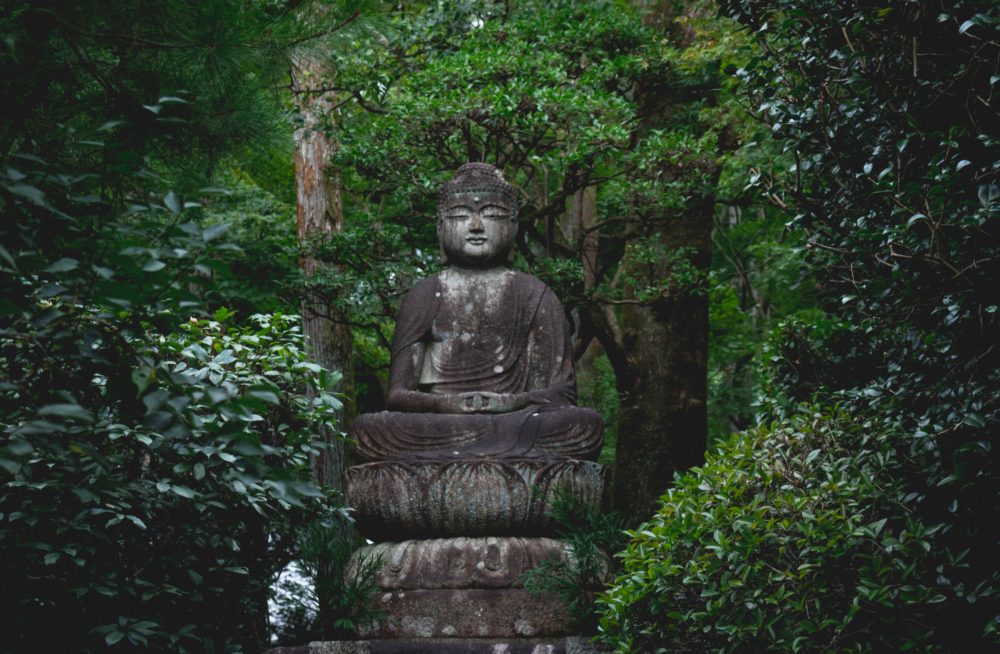The third foundation of Right Mindfulness is contemplation of the mind. When you practice this, you learn to mind your mental formations. And that includes…just about everything. Formations in Buddhism is a technical term for anything that is made of something else. So fear is a formation, and so is a chair, and so is a tree. Mental formations, of course, describe everything we form in our minds. And the only thing that doesn’t include is our essence, our Buddha nature, our very being.
In Right Mindfulness, we practice recognizing and naming our mental formations. We don’t have to control them, at least not at first. When we’re frightened, we just acknowledge to ourselves we’re frightened. So, in the second foundation of Right Mindfulness we asked, “How are you feeling?” In this one, we ask, “What are you thinking?” But what I love about calling them mental formations is that it reminds us that these thoughts we have aren’t as solid as we think. They aren’t mental Mount Everests. They’re just thoughts, which Bhikkhu Bodhi calls “momentary mental acts.” Again, seeing our thoughts this way reminds us of their impermanence. Thoughts come, and thoughts go. Just watch them as they rise and fall.
Thich Nhat Hanh says when our thoughts are unwholesome, they can act like balls of string, tangling us up and making us feel caught. When we relax and name them for what they are- a temporary mental formation that has been created and will likely pass- we calm down. We feel empowered to work with them. We don’t feel so overwhelmed by them.
Many of these tips echo those we discussed for working with our feelings. But of course, we experience thoughts and feelings differently. And we locate them in our bodies differently, too. If you tend to live in your head, you might find it easier to regulate your emotions and trickier to monitor your thoughts. Notice how your thoughts and feelings feed into each other and help form one another- for good and for ill.
One last thing to note: we have personal mental formations, but we also have collective ones. Our collective consciousness affects us, even though we tend to be less aware of it. Cultural perceptions of beauty, success, or happiness greatly influence our own experience of those things. These count as mental formations, too. And they’re often created by people who have something other than our enlightenment in mind. Advertisers want our dollars, the economy wants our effort, institutions want our loyalty, etc. Part of the process of enlightenment means asking ourselves whether we’re letting these affect us in a way that holds us back.
The power of the collective consciousness also reminds us that everything we do, every thought we have, can affect far more than just our own minds- and comes from far more than just our minds. It also reminds us that even the most entrenched thoughts and reactions can shift when we become aware of them. (And that’s good news!) What cultural mental formations do we want to build, even if they are all impermanent?
(If you want to take a deep dive into this through the lens of misogyny, listen to this episode of Ezra Klein’s podcast with philosopher Kate Manne. It is really helpful and insightful- and you won’t be surprised that Buddhist meditation and mindfulness come up a number of times.)
This week, notice what you’re thinking. When you feel stuck in a thought, try to remember it’s nothing more than a mental formation and see if that helps you relax into a place of wisdom.
This post belongs to my series on practicing the Eightfold Path. You can find all my posts on Right Mindfulness here.




